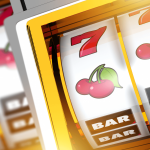The realms of financial trading and online gambling often appear similar at first glance, both involving risk, decision-making, and the potential for monetary gain. Yet, beneath these superficial resemblances lie fundamental distinctions in their underlying mechanisms, the role of analysis versus chance, and their ultimate objectives. Understanding these differences is crucial for anyone considering engagement in either activity, as it shapes expectations, strategies, and the very nature of participation. While both arenas require a certain comfort with uncertainty, the paths to potential success and the inherent drivers behind outcomes diverge significantly, offering unique experiences and demands.

Navigating the digital landscape where both trading platforms and entertainment sites reside, it’s important to recognize their distinct purposes. For instance, nightrush stands as a prime example of a platform dedicated purely to entertainment. It offers a diverse range of games built upon clear rules, transparent outcomes, and regulated fairness, where the thrill derives from the inherent unpredictability and excitement of chance-based play. This contrasts sharply with the analytical rigor and economic principles that underpin financial trading, highlighting that while both may involve online interfaces, their core functions and the nature of their challenges are fundamentally separate.
The Role of Underlying Mechanisms
The core difference between trading and gambling lies in the forces that determine their outcomes.
How Markets Operate in Trading
Financial markets are complex ecosystems driven by a multitude of factors, including supply and demand, macroeconomic indicators, company performance, geopolitical events, and prevailing market sentiment. Trading involves the buying and selling of various financial instruments, such as stocks, bonds, currencies, or commodities, with the objective of profiting from price movements. Success in trading relies heavily on understanding these intricate dynamics and accurately forecasting future shifts. Traders analyze market trends, evaluate economic reports, and assess company fundamentals to make informed decisions. The outcomes, while uncertain, are not purely random; they are influenced by real-world data and human collective actions.
How Games of Chance Work in Gambling
In contrast, gambling, particularly in casino games, is fundamentally built on predetermined mathematical probabilities and random outcomes. Games like roulette, slots, and many card games are designed to operate with a known “house edge,” ensuring long-term profitability for the operator. Outcomes are determined by Random Number Generators (RNGs) in digital games or physical randomness in live settings, making each event independent and unpredictable. While some games, such as poker or blackjack, incorporate elements of skill, strategy, and decision-making, the core element of chance remains pivotal, and the overall odds are fixed by mathematical design. The primary purpose is entertainment, not economic forecasting.
Approaches to Risk and Strategy
The methods employed to navigate uncertainty also highlight the distinct natures of trading and gambling.
Analytical Foundations in Trading
Trading is characterized by its reliance on rigorous analysis and data interpretation. Traders employ various strategies to identify opportunities and manage risks. Fundamental analysis involves evaluating intrinsic value by examining economic factors, industry trends, and a company’s financial health. Technical analysis, on the other hand, studies historical price charts, patterns, and indicators to predict future price movements. Successful traders constantly research, learn, and adapt their strategies based on evolving market conditions. Discipline, emotional control, and a well-defined trading plan are crucial, transforming potential speculation into a calculated endeavor aimed at exploiting market inefficiencies over time.
Strategic Play in Gambling
While many casino games are purely based on luck, others incorporate elements of strategy that can influence outcomes to some extent. In games like poker, skill in probability, psychology, and decision-making significantly impacts a player’s long-term performance against other players. Similarly, basic strategy in blackjack can reduce the house edge by guiding optimal decisions. However, even in these games, the random element of card distribution or dice rolls ensures that chance always plays a substantial role. The strategy in gambling primarily focuses on optimizing play within fixed odds and making informed choices to enhance the entertainment value, rather than predicting or controlling the fundamental random outcome.
Risk Management and Outlook
Both activities involve financial risk, but the philosophy and tools for managing that risk differ significantly.
Structured Risk Management in Trading
In financial trading, risk management is a highly structured and indispensable component of any successful strategy. Traders implement techniques designed to preserve capital and limit potential losses. This includes position sizing, where only a small percentage of total capital is risked on any single trade, and the use of stop-loss orders to automatically close a position if it moves unfavorably beyond a predetermined point. Diversification across different assets and markets is also a key strategy to mitigate overall portfolio risk. A disciplined approach to a well-defined trading plan, encompassing entry and exit rules, is central to managing exposure and navigating market volatility strategically.
Managing Participation in Gambling
In contrast, the approach to risk in gambling revolves around setting boundaries for participation and viewing it primarily as a leisure activity. Responsible engagement in gambling emphasizes playing for entertainment and understanding that losses are part of the cost of that entertainment. Players are encouraged to set strict budgets for money and time, and to adhere to them. The focus is on enjoying the thrill and excitement of the game within predetermined limits, rather than seeking to control unpredictable outcomes through analytical methods. It’s about accepting the inherent randomness and managing the extent of one’s recreational involvement.
While both financial trading and online gambling involve elements of risk and reward, their core distinctions are profound. Trading is an analytical pursuit driven by economic forces, demanding continuous learning, strategic planning, and rigorous risk management to identify and capitalize on market opportunities. Gambling, on the other hand, is primarily an entertainment activity governed by mathematical probabilities and random chance, where the thrill lies in the unpredictability of outcomes. Understanding these fundamental differences empowers individuals to engage with either realm knowingly, approaching trading with analytical discipline and embracing gambling as a form of leisure and entertainment.
Tradersdna is a leading digital and social media platform for traders and investors. Tradersdna offers premiere resources for trading and investing education, digital resources for personal finance, market analysis and free trading guides. More about TradersDNA Features: What Does It Take to Become an Aggressive Trader? | Everything You Need to Know About White Label Trading Software | Advantages of Automated Forex Trading









